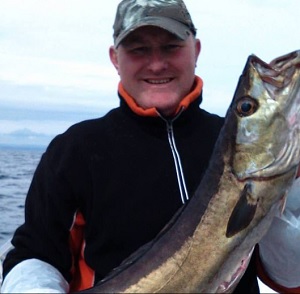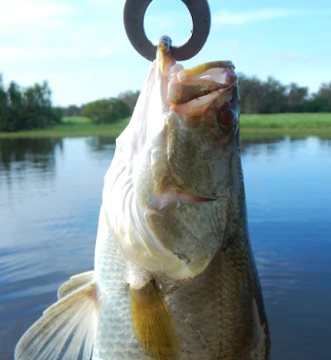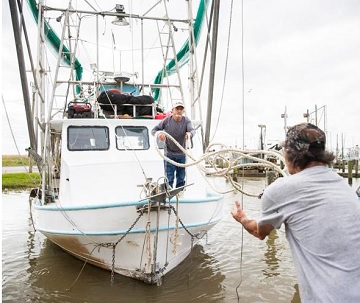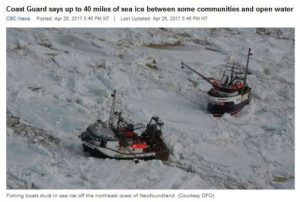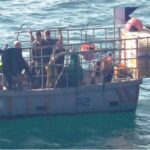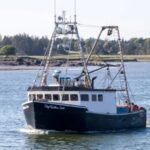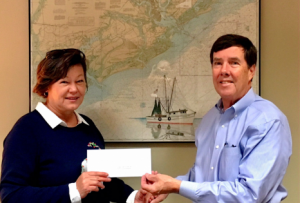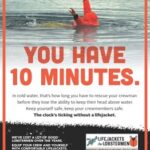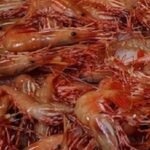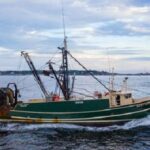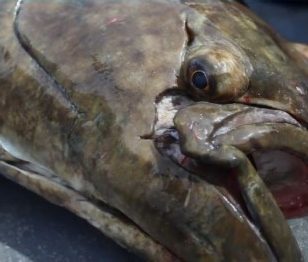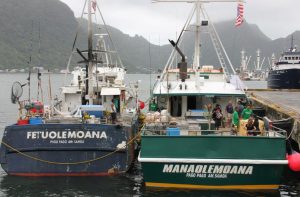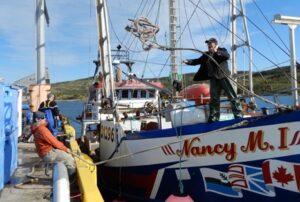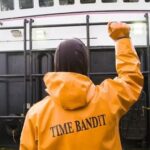Tag Archives: commercial fishermen
A business in crisis
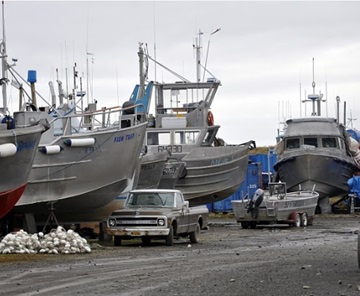 After years of choking on record runs of Bristol Bay sockeye salmon and near-record runs of heavily farmed, low-value pink salmon, the Alaska fishing industry is in chaos with processors now pleading for more government subsidies and coddled commercial fishermen demanding yet more disaster aid. One could blame global warming, which has led to historically unprecedented harvests of Alaska salmon despite whatever nonsense to the contrary the mainstream media might have reported, but the industry’s problems are far more complex than just trying to sell high-priced seafood in Western markets where the sales of animal protein are dominated by chicken, beef and pork. Some of the industry’s issues here are rooted in its long history. For most of the years after commercial fishing began in Alaska in the late 1800s, the business dealt almost wholly in canned salmon. >>click to read<< 08:41
After years of choking on record runs of Bristol Bay sockeye salmon and near-record runs of heavily farmed, low-value pink salmon, the Alaska fishing industry is in chaos with processors now pleading for more government subsidies and coddled commercial fishermen demanding yet more disaster aid. One could blame global warming, which has led to historically unprecedented harvests of Alaska salmon despite whatever nonsense to the contrary the mainstream media might have reported, but the industry’s problems are far more complex than just trying to sell high-priced seafood in Western markets where the sales of animal protein are dominated by chicken, beef and pork. Some of the industry’s issues here are rooted in its long history. For most of the years after commercial fishing began in Alaska in the late 1800s, the business dealt almost wholly in canned salmon. >>click to read<< 08:41
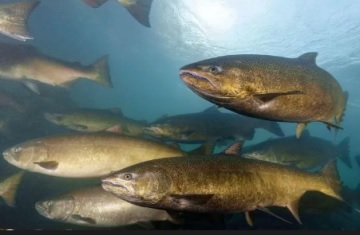
Oregon fishing disaster declared after failure impacting Chinook Salmon
Oregon Gov. Tina Kotek announced Friday that a fishing disaster has been declared following a three-year commercial fishery failure in the state. The declaration comes after U.S. Secretary of Commerce Gina Raimondo determined that a commercial fishery failure occurred in 2018, 2019 and 2020 because of a fishery resource disaster impacting Oregon Chinook Salmon Fisheries, the governor said. The determination comes after a request from former Gov. Kate Brown in October 2021. Fisheries with disaster determinations are eligible for funding from fishery disaster appropriations to help with community recovery, fishery restoration and prevention of future disasters. >>click to read<< 17:00
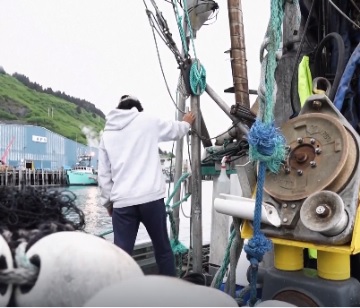
In a surging seafood industry, boat captains struggle to find workers
Fukushima sake brewer warms shattered Japanese fishing community
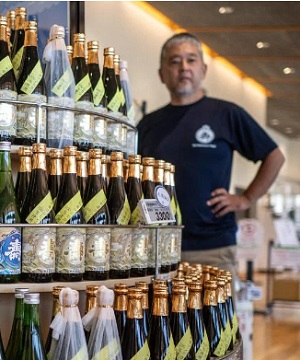 Daisuke Suzuki is helping by doing what he does best as life tentatively returns to normal for the devastated fishing communities of Japan’s Fukushima region: making sake. The “toji” sake master and his family were lucky to escape with their lives when a huge earthquake and tsunami devastated the area in March 2011, killing about 18,000 people and knocking out the nearby nuclear plant. In the town of Namie, the disaster obliterated the old port of Ukedo and its local fishing industry, as well as the Iwaki Kotobuki sake brewery that Suzuki’s family has owned for five generations. For two centuries, at least, it had made the rice wine that revived many a fisherman’s spirits after returning to port from the capricious Pacific Ocean with a hold brimming with fish. They would drink cups of Iwaki Kotobuki sake over white-meat sashimi of flounder and bass, delicacies from the Fukushima coast. “The sake was always there, just like the fish,” said one taciturn local fisherman, not wishing to be identified. “That is the way it has been here since my childhood.” Two years ago, the government gave the all-clear for the sale of fish from the Fukushima region to resume. The fisherman needed something to drink, and Suzuki then built a new sake plant back in Namie. >>click to read<< 15:42
Daisuke Suzuki is helping by doing what he does best as life tentatively returns to normal for the devastated fishing communities of Japan’s Fukushima region: making sake. The “toji” sake master and his family were lucky to escape with their lives when a huge earthquake and tsunami devastated the area in March 2011, killing about 18,000 people and knocking out the nearby nuclear plant. In the town of Namie, the disaster obliterated the old port of Ukedo and its local fishing industry, as well as the Iwaki Kotobuki sake brewery that Suzuki’s family has owned for five generations. For two centuries, at least, it had made the rice wine that revived many a fisherman’s spirits after returning to port from the capricious Pacific Ocean with a hold brimming with fish. They would drink cups of Iwaki Kotobuki sake over white-meat sashimi of flounder and bass, delicacies from the Fukushima coast. “The sake was always there, just like the fish,” said one taciturn local fisherman, not wishing to be identified. “That is the way it has been here since my childhood.” Two years ago, the government gave the all-clear for the sale of fish from the Fukushima region to resume. The fisherman needed something to drink, and Suzuki then built a new sake plant back in Namie. >>click to read<< 15:42
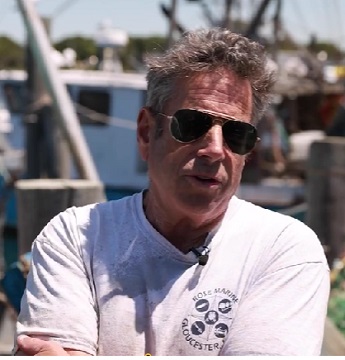
Wind energy expansion raises concerns over fishing industry’s future
The burgeoning development of offshore wind energy along the East Coast is drawing attention to a growing concern: the potential impact on the livelihoods of commercial fishermen who operate in these waters. The collision between the expanding renewable energy sector and the established fishing industry has ignited a debate over the future of these shared waters. While not all fishing organizations oppose offshore wind projects, some fishermen, such as Dave Aripotch in Montauk, N.Y., have expressed fears that their industry is at risk. They argue that their concerns have been overshadowed by the rapid push for clean energy solutions. Video, >>click to read<< 09:18
Bay Area commercial fishers struggling under weight of recent catch restrictions
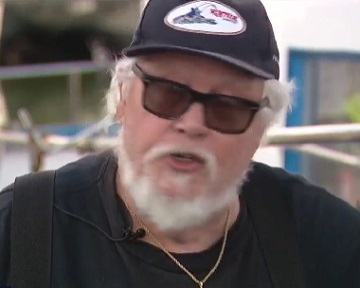 Bay Area commercial fishers say they are facing unprecedented financial hardships this year after dealing with a range of restrictions on several of their key catches. “I’m struggling to pay my bills. I’m definitely going to be in the red this year,” said William “Captain Smitty” Smith, who has commercially fished and run charters out of Half Moon Bay since 1985. Smith says he has been hit hard by the State’s decision to cancel salmon season off the coast for the first time in 14 years. “My overall business for the year, is down 90 percent,” said Smith. “The salmon is one of the major mainstays of this whole harbor. If you look across, every boat is here, every boat is tied up. These guys have got mortgages to pay, got bills to pay,” said Smith. Video, >>click to read<< 10:15
Bay Area commercial fishers say they are facing unprecedented financial hardships this year after dealing with a range of restrictions on several of their key catches. “I’m struggling to pay my bills. I’m definitely going to be in the red this year,” said William “Captain Smitty” Smith, who has commercially fished and run charters out of Half Moon Bay since 1985. Smith says he has been hit hard by the State’s decision to cancel salmon season off the coast for the first time in 14 years. “My overall business for the year, is down 90 percent,” said Smith. “The salmon is one of the major mainstays of this whole harbor. If you look across, every boat is here, every boat is tied up. These guys have got mortgages to pay, got bills to pay,” said Smith. Video, >>click to read<< 10:15
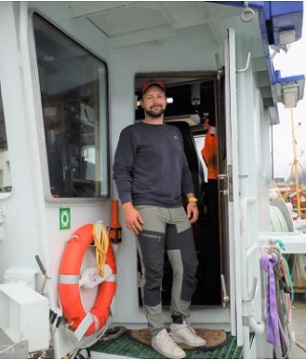
Life on the Arctic Coast: Coxswain Kim Roger Stays Calm When Put to the Test
It is afternoon in the idyllic fishing village Sørvågen in the Lofoten Islands. Below the houses, in the bay, several small fishing vessels and a fish processing plant can be found. It is quiet outside, with the exception of a few seagulls crying. A larger fishing vessel also lies along the quay, the purse seine boat Kim Roger. High North News is allowed onboard and greet the coxswain and fisherman Kim Roger Benonisen (38). The eye is drawn to the amount of equipment located on the stern and the bow of the 50-foot-long boat; various types of ropes, winches, hydraulic hoses, a crane, and a net hauler. Kim Roger says he has been fishing his entire life. His first winter season was in 2003 – exactly 20 years ago. Photos, >>click to read<< 10:36
Dawn Buckingham: Can Texas Stop Biden from Building a Massive Wind Farm Off Its Coast?
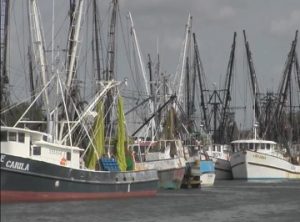 As a ninth-generation Texan, I have always loved and respected our beautiful coast, its vibrant economy, and the hard-working men and women whose livelihoods depend on the preservation of these waters. Since taking the helm of the General Land Office as the first female Land Commissioner in state history, I have also had the immense responsibility of stewarding over 13 million acres of state lands, protecting our state’s open beaches, and providing critical relief to Texans in the aftermath of hurricanes and other major storms. Texas commercial fishermen stand to lose a huge swath of navigable waters containing rich fisheries. This project could absolutely devastate this vital industry, robbing families of high-paying jobs, ending family businesses that span generations, and ultimately making the entire United States more dependent on seafood imports from places like China. >click to read< 11:57
As a ninth-generation Texan, I have always loved and respected our beautiful coast, its vibrant economy, and the hard-working men and women whose livelihoods depend on the preservation of these waters. Since taking the helm of the General Land Office as the first female Land Commissioner in state history, I have also had the immense responsibility of stewarding over 13 million acres of state lands, protecting our state’s open beaches, and providing critical relief to Texans in the aftermath of hurricanes and other major storms. Texas commercial fishermen stand to lose a huge swath of navigable waters containing rich fisheries. This project could absolutely devastate this vital industry, robbing families of high-paying jobs, ending family businesses that span generations, and ultimately making the entire United States more dependent on seafood imports from places like China. >click to read< 11:57
Mullet fishers keep proud tradition alive for next generation along south-east Queensland beaches
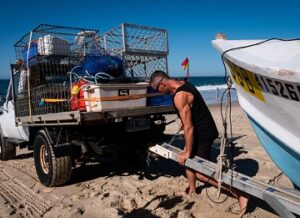 For more than a century, commercial fishermen have been gathering on some of Queensland’s most popular beaches every winter, poised for action as a cool breeze blows. Their four-wheel drives, stacked with metal cages and boats piled with fishing nets, take up room usually reserved for sunbathing holidaymakers. It’s mullet fishing season along Queensland’s southern coast as the fish migrate north to spawn during the colder months of the year. The practice of fishing for mullet with nets off the beach, and the highly prized licences, are passed down through the generations. “I do it because that’s virtually all I know and I’ve done this since I was a little kid,” commercial fisherman Michael Thompson says. Video, photos, >click to read< 10:56
For more than a century, commercial fishermen have been gathering on some of Queensland’s most popular beaches every winter, poised for action as a cool breeze blows. Their four-wheel drives, stacked with metal cages and boats piled with fishing nets, take up room usually reserved for sunbathing holidaymakers. It’s mullet fishing season along Queensland’s southern coast as the fish migrate north to spawn during the colder months of the year. The practice of fishing for mullet with nets off the beach, and the highly prized licences, are passed down through the generations. “I do it because that’s virtually all I know and I’ve done this since I was a little kid,” commercial fisherman Michael Thompson says. Video, photos, >click to read< 10:56
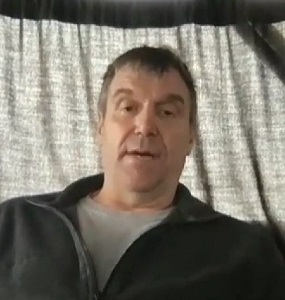
Bristol Bay fishermen up in arms against lower salmon prices, will protest
Commercial fishermen in the Bristol Bay region are voicing their displeasure against recent prices of sockeye salmon. According to fisherman Cheyne Blough, the price of sockeye salmon hovered around $1.20-$1.50 per pound, but as of recently, the price dropped to 50 cents. “We all expected less than last year. But we had no clue it was gonna be basically kind of bankruptcy prices,” Blough said. Since then, Blough along with several other commercial fishermen have set up a protest that will happen on Thursday, where fishermen will line up their boats in front of the Naknek River, in protest of the lowered prices. Video, >click to read< 07:50
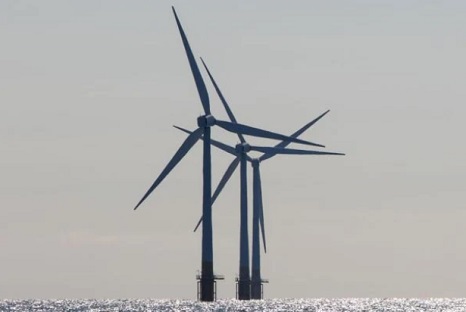
The ‘very liberal’ doctor, the pro-GOP car dealer and the movement against offshore wind
This story is based on interviews with a dozen people who are organizing efforts to oppose offshore wind projects, as well as scientists and environmentalists. E&E News also reviewed tax documents, regulatory filings and emails obtained under New Jersey’s Freedom of Information Act. The wind opponents are gaining traction. Some Republicans in Congress have called for a moratorium on offshore wind projects. In New Jersey, where the debate has been particularly fierce, more than 40 mayors organized by a D.C. lobbyist called for a wind moratorium, and a recent poll found that more residents support halting wind projects (39 percent) than building them (35 percent). Wind detractors have packed public meetings in Rhode Island, and opponents have filed lawsuits in Massachusetts, New York and New Jersey to halt projects. >click to read< 14:49
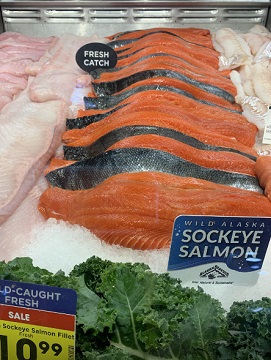
Statewide commercial salmon harvest tops 14M fish
Millions of wild salmon heading for their spawning grounds in Alaska are being greeted by commercial fishermen with drift gillnets and setnets, harvesting upwards of 14 million fish through Tuesday morning, including over four million in Prince William Sound. For the Copper River District itself over 601,000 salmon were delivered to processors and the state’s central region had an overall catch of over 11.6 million fish. Preliminary data compiled by the Alaska Department of Fish and Game put the catch through Tuesday at over 14 million fish harvested statewide, including 10.3 million sockeyes, 3.3 million chums, 331,000 pink, 46,000 Chinook, and 6,000 coho salmon. >click to read< 10:54
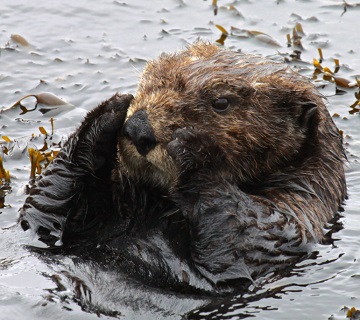
(Un)welcoming Waters: Sea otters poised for comeback to Marin and Sonoma counties
On a daily basis, sea otters consume 25% of their body weight in food. Hence, there are very real concerns by the fishermen who make their living hauling in Dungeness crabs and the other invertebrates that sea otters devour. Reestablishing sea otters could disrupt an entire industry right here in Marin and Sonoma counties and beyond. Dick Ogg, a Sonoma County resident for 62 years, has been fishing most of his life. For the last 25 years, he’s been a commercial fisherman, with his income relying heavily on crabbing. “They’re cute, the sea otters, but they are going to eat whatever they can get their hands on. Everybody knows bringing them back is going to affect the crab industry.” >click to read< 10:24
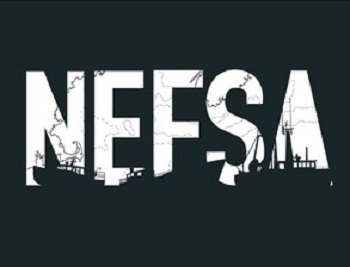
We’re Being Regulated Out of Business, New England Fishermen Say
“The New England fishermen are the most regulated fishermen in the world,” Jerry Leeman says. Leeman has been fishing in Maine his entire life. His father, grandfather, and great-grandfather were all fishermen. Federal regulations have now reduced the amount of haddock landings for commercial fishermen by more than 80%, Leeman said. The reduction in fish that fishermen are allowed to catch and “offshore wind development,” which is taking over “just under 10 million acres” of ocean, prompted Leeman, along with fisherman Dustin Delano, to create the New England Fishermen’s Stewardship Association to advocate for the region’s fishermen. Video, listen to the podcast >click to read< 07:55
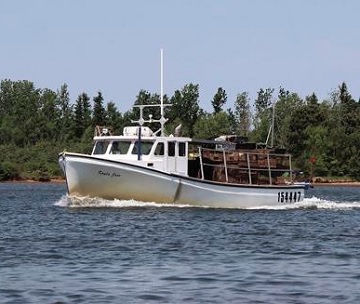
Lobster catches down – ugly spring brings wind and cold
North Lake fisher Kent Poole, who is also the president of the Eastern Kings Fisherman’s Association, said there were struggles along different harbours, particularly on the north shore where last fall’s hurricane left a path of destruction. “They were seeing a lot of damaged lobsters, shells broken and half shells coming up in the traps. Whether you could attribute that to (Hurricane) Fiona, I’m not sure, but they’d never seen it before,” Mr Poole said. On the south side, Souris fisher Max MacDonald said the water temperature remained low. “It was a slow start for about the first three weeks and things kind of got rolling after that and it has been pretty steady,” the captain of Strait Ahead said. >click to read< 09:03
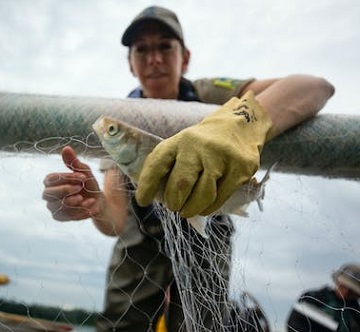
Historic boom in Lake Superior’s herring population could be best in 40 years
Potentially record numbers of lake herring, also called cisco born last spring seem to have survived their first year of life, according to state and federal biologists. At a year old, they should be just large enough that few predators in Lake Superior will now eat them. The stunning boom, not seen since at least 1984, will help sustain both the ecosystem and Minnesota’s commercial fishing industry in one of the world’s greatest lakes for years to come, said Cory Goldsworthy, Lake Superior fisheries supervisor for the Minnesota Department of Natural Resources. “This is what we’ve been waiting for,” Goldsworthy said. “It’s something we’ve never seen before in our careers and may not see again.” >click to read< 09:46
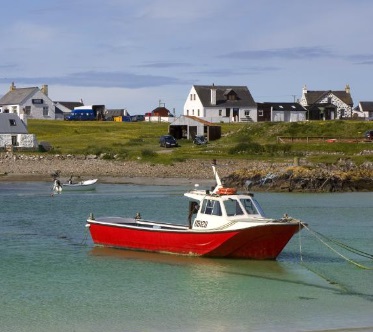
HPMAs: Tiree’s economy could sink unless plans are scrapped
In Tiree, there are good years and bad years. Years when crab and lobster are plentiful, years when they are not. Small boats work using fixed-line, static gear. Tiree fishermen place their creels with the precision afforded by sonar technology. There is no bycatch. Anything which will not be landed is thrown back alive. Many are voluntarily notching lobsters to ensure future stocks. Now, with the government’s proposals for statutory HPMAs, we are being told that our seas must be even more highly protected – from the people who live and work here. From us. >click to read< 10:01
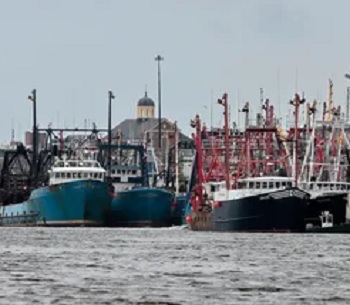
Profitable Port of New Bedford draws IRS scrutiny of tax evading fishermen
As the nation’s number one commercial fishing port, New Bedford is very much on the radar. “The statistics we have cover the six New England states but really the fishing industry is significant in Rhode Island, Maine and Massachusetts, with, of course, New Bedford being the most valuable port not only in New England but in the United States,” said IRS Criminal Investigation Supervisory Special Agent Matthew Amsden. Seven New England fishermen, including three from New Bedford and one from Fall River, were charged last month with tax evasion and failing to file returns. The other three indicted were from Rhode Island, according to a press release from the IRS Criminal Investigation unit. >click to read< 07:40
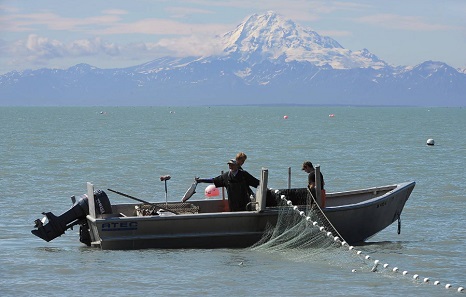
The end of an era for Alaska fishing may already be here
The historic Long Island fishing town of Amagansett is about 100 miles from New York City — roughly the distance from Ninilchik to Anchorage. Remarkably, a remnant commercial fishery continued on eastern Long Island into the 1980s, despite mounting pressure from urban growth, pollution and rival sport fishermen. This summer, Kenai Peninsula beaches from Ninilchik to Kenai will be empty of setnets and buoys. Family-run commerial fishing businesses, a major economic force in the Cook Inlet region since territorial days, have been shut down and may not be coming back. Exceptional sockeye runs of the 1980s, when setnetters on east-side beaches recorded a few million-dollar seasons, helped set the stage for Cook Inlet’s modern fish wars. Sportfishermen saw too many prize king salmon in fish totes headed to processors. As more permit-holders migrated to the east-side beaches, new efforts were launched to avoid Kenai River kings. >click to read< 15:40
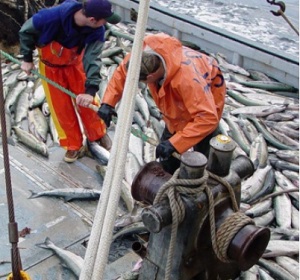
New England fishermen, many from New Bedford, Fall River charged with tax offense
Federal grand juries in Providence, Rhode Island, and Boston returned separate indictments charging seven commercial fishermen with tax evasion and failing to file returns. According to the indictments, the commercial fishermen each worked for fishing companies operating primarily out of New Bedford, Massachusetts, or Point Judith, Rhode Island, and received substantial compensation. The companies allegedly paid the fishermen as independent contractors and documented that income by, among other things, filing Forms 1099 with the IRS that reported the funds paid to the fishermen. >click to read< 09;11
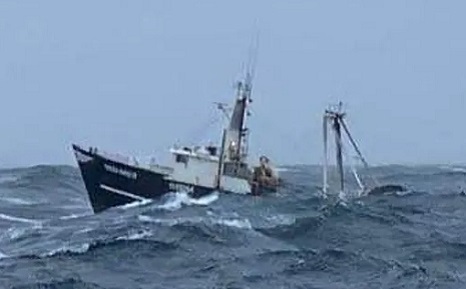
I’m a fishing boat captain. Green energy companies, government want to put me out of business
Offshore wind energy might be killing whales, but there’s no question it’s killing American fishermen. I’ve been a fishing boat captain for over 20 years. I live on an island in Maine and sail out of New Bedford, Mass. My brothers and cousins are lobstermen. Fishing is the trade our family has plied for generations. We’re proud to practice the founding craft of our nation. When colonists first settled New England, they looked to the sea to sustain them. And so it is for our coastal communities four 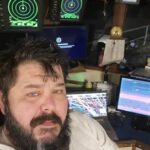 centuries on. But for how much longer? Federal regulators and foreign green energy companies seem determined to drive us off the water and lay waste to the communities that depend on fishing. If their well-laid development plans succeed, biblical calamity will follow for working people across New England. Consider the mechanics of fishing. Photos, Video, >click to read< 10:06
centuries on. But for how much longer? Federal regulators and foreign green energy companies seem determined to drive us off the water and lay waste to the communities that depend on fishing. If their well-laid development plans succeed, biblical calamity will follow for working people across New England. Consider the mechanics of fishing. Photos, Video, >click to read< 10:06
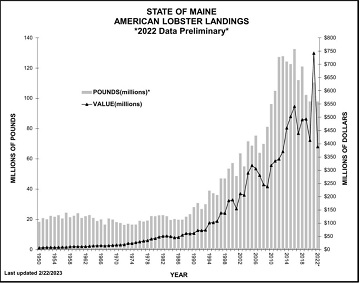
Lobstermen earn majority of commercial fishing haul
Maine’s commercial fishermen earned about half of what they did last year, according to preliminary data released on Tuesday by the state’s Department of Marine Resources (DMR). But while the total of $574 million pales in comparison to 2021’s historic high value of $907 million, it is in line with data from previous years. Maine’s lobstermen brought in the majority of that haul with 97,956,667 pounds, contributing $388,589,931 to the overall commercial harvest total. >click to read< 10:34
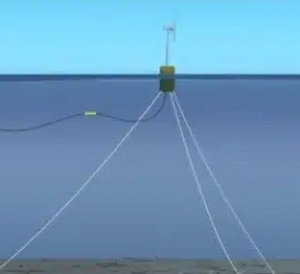
A lament of whales and windmills
So, today my wife and I went to a memorial service for Ms. Corrine Damon (a faithful servant of the Lord). A friend from church (Len Wolfe) asked if I would look into what is going on with the wind turbine generator site exploration and construction and its impacts on marine life and their habitats. Len was mainly concerned with the many Humpback whales washing up on the northeast coastal areas (especially around the New Jersey coastline). It affects the fisheries all the way up through Maine, and politics (and industry money) are the deciding factors in the equation. One website on Youtube named “Will Offshore Wind Harm Marine Life” by a group called “The Maine Reset” shows that some of the construction areas will have “Wind Farms” with as few as a dozen of these rigs set up (with these massive chains intertwined underneath each other). >click to read< 12:19
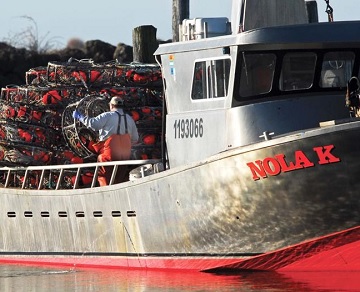
Storm clouds gather over local crabbing fleet
The morning was frozen, clear and calm, far better than many “dump days.” Sunday marked a first chance to start making some money after two months stuck in port. Most crabbers wouldn’t have been to bed overnight before placing their first pots. Some squeeze in more dump runs before Wednesday morning, Feb. 1, when a nearly nonstop frenzy of harvest and delivery will commence and last for weeks. With little or no sleep leading to exhaustion, the Dungeness fishery off Washington and Oregon is among the most dangerous jobs in the country. Winter weather and ocean conditions can be crazy. Fatalities are all too common, while crabbers barely bother mentioning all the back injuries, damaged fingers and a litany of other mishaps. Even so, there are plenty of local guys who don’t want it any other way. They see risk as the price of freedom. >click to read< 07:48
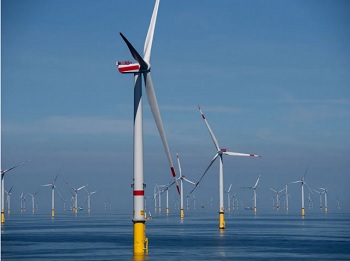
Offshore Wind Farms in New England Create Headaches for Both Man and Beast
“I don’t think ever in history has there been such a massive alteration of the ecosystem in such a short amount of time,” says the executive director of New Jersey-based Clean Ocean Action, Cindy Zipf. “We’re looking at 3,500 turbines as tall as the Chrysler Building, 2.2 million acres of ocean, and 10,000 miles of cable just in the Northeast in just the next seven years.” At the center of the conflict is the North Atlantic right whale and other endangered marine mammals that the Commerce Department’s National Oceanic and Atmospheric Association National Marine Fisheries Service are charged with protecting. Fewer than 350 right whales are left in the Atlantic Ocean, according to the fisheries service. >click to read< 08:14








